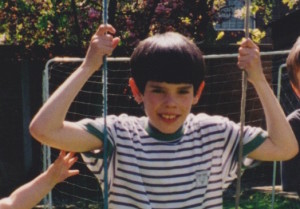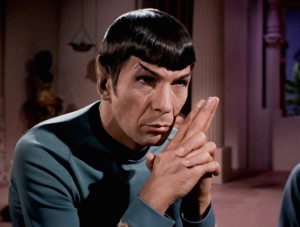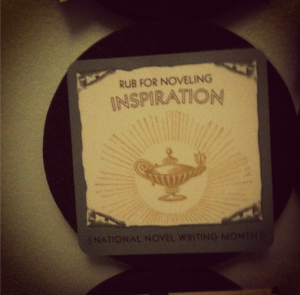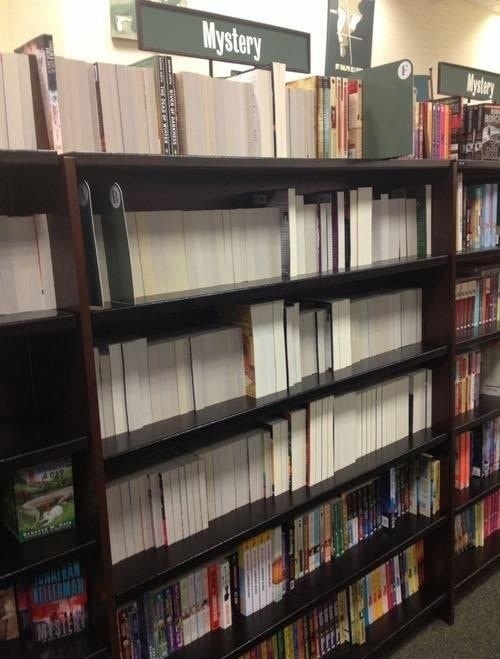
Leonard Nimoy – Rest in Peace
I grew up watching repeats of the original Star Trek series, at the time I thought it was a modern day children’s show rather than repeats of an older show for families. My favourite character was Mr. Spock, as played by the recently departed Leonard Nimoy.
Spock is half human and half vulcan – an alien race that prides itself on logic and control of their emotions. Through out the shows and movies, he struggled to come to terms with his human side and human nature, but he learns. From 1966 to 2009, the character of Spock evolved and by the end he has embraced his human side.
With my dark hair and pointed eyebrows I looked a lot like Spock, and was regularly called Spock by people at school. Like Spock, I also felt out of touch with my emotions and the people around me.

Although I didn’t realise it at the time, watching Spock on Star Trek really helped me. It was a safe place to explore human interactions, emotions, and friendships, I learnt a lot by watching this man learn about, and embrace, his humanity.
This side of Star Trek was embodied by Nimoy’s portrayal of Spock but Star Trek continued this exploration of being human through spin off characters like Data – an android trying to be human, Odo – a shapeshifting alien forced to live in a human form, and Seven Of Nine – a human who was raised by a cyborg race that repressed individuality. They all continued the journey Spock started, and as an awkward teenager I appreciated them all.
Leonard Nimoy’s impact on Star Trek goes beyond Spock. Behind the scenes he worked on several of the movies as a writer, director, and producer.
In Star Trek IV: The Voyage Home, an alien-being wreaks havoc on Earth’s atmosphere in search of the extinct humpback whales it once communicated with. The Enterprise crew go back in time to 1986 to find two humpback whales they can bring to their time to stop the aliens destroying Earth. Leonard Nimoy co-wrote the story and directed the film, creating a humourous story with an environmental message that helped raised awareness of an endangered species.
https://www.youtube.com/watch?v=CPztpGBrfD8
Nimoy worked as Executive Producer on Star Trek VI: The Undiscovered Country, and is credited with coming up with the idea for the movie. At the time of production, 1991, the cold war was over and the US was coming to terms with calling the Russian’s friends instead of enemies. In Star Trek the Klingon empire, an alien race of warriors, were stand ins for Russia so Nimoy suggested a movie that explored the “wall falling” in the Star Trek universe. The film examined prejudice by portraying the beloved main characters as bigots that feared the Klingons and come around to a new way of thinking. It was a bold move and I regard Star Trek: VI as the best movie because it has so much to say about race and fear of change.
In the film, Kirk and McCoy – Spock’s best friends – have been framed for the assassination of a Klingon chancellor and Spock must prove their innocence. To solve the murder mystery Spock uses his vulcan logic to search for clues but also his human capacity to break the rules for his friend’s sake.
As a boy growing up I thought related to this alien character, but as Englishman living in the United States, I relate now more than ever. I’ve got immigration documents that refer to me an “alien”, and any stiff upper lipped Brit is going to look like a Vulcan compared to the expressive Americans. At 32 years old I still find relief re-watching the old shows and movies that Nimoy shaped.
He has a lasting legacy and because of that, even in death, he will continue to live long and prosper.




